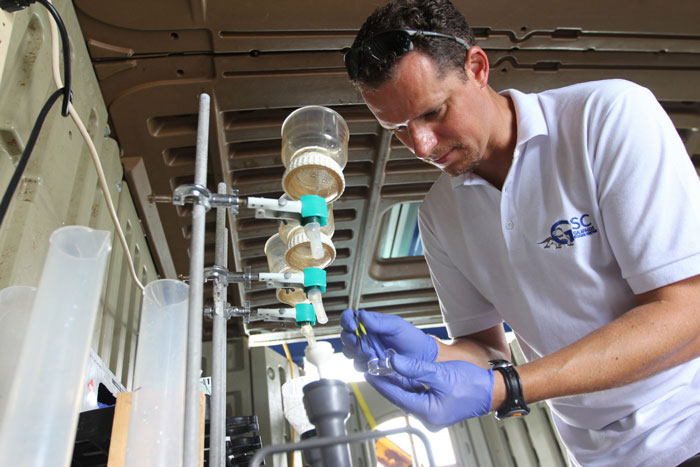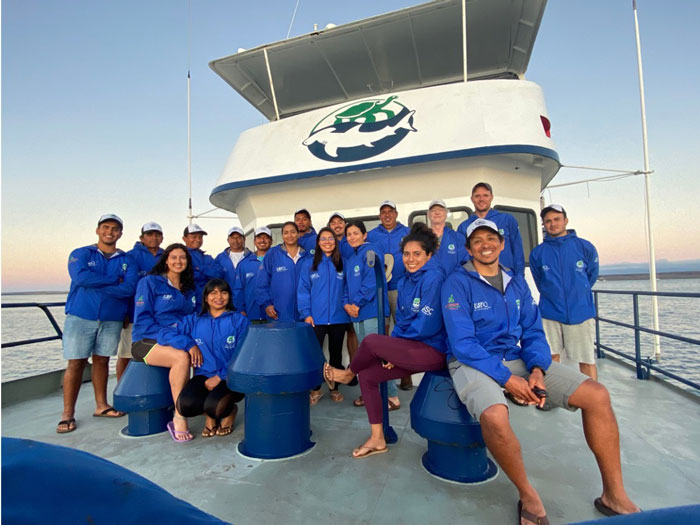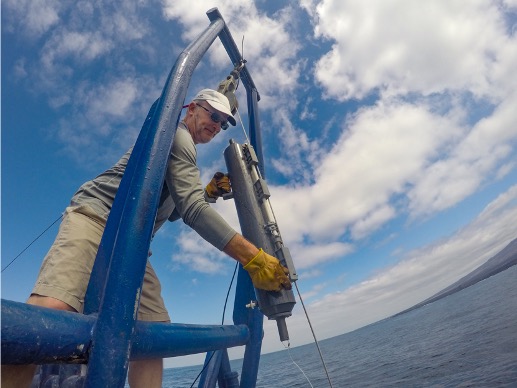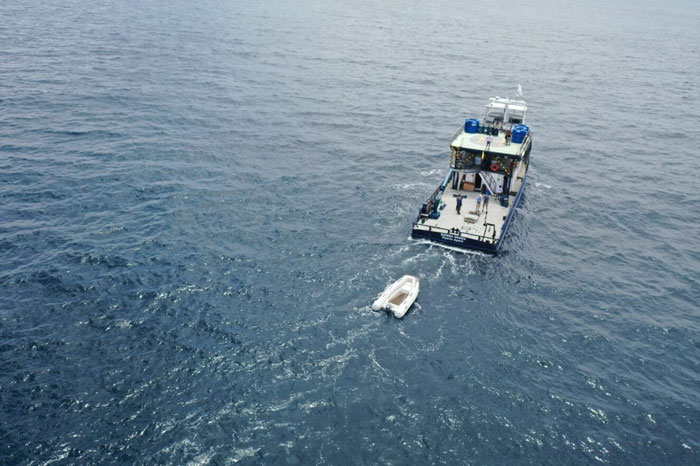UNC researchers Adrian Marchetti and Harvey Seim in the Department of Earth, Marine and Environmental Sciences, alongside researchers from MBARI and University of Texas, Rio Grande Valley, recently received a $2.5m grant from the National Science Foundation’s (NSF) Biodiversity on a Changing Planet program to support their proposal titled ‘The influence of different nutrient delivery modes on functional biodiversity of marine plankton in a changing ocean.’

This award will be an expansion of almost 10 years conducting research in the Galapagos studying the impacts of changing physical environments on nutrient availability to marine plankton. Preliminary results used in the NSF proposal were obtained during the long-term marine monitoring program initiated in 2014 as a collaboration between the Galapagos Science Center (GSC) and the Galapagos National Park. The most recent marine expedition took place in November 2022 during a La Niña event where a team of 12 researchers traveled for 16 days to measure oceanographic parameters at 30 different sites across the archipelago.

This transformational funding will be shared across all three institutions and includes support for research and educational staff at the GSC to assist in the project.
Project Abstract
All living organisms must acquire nutrients from their environment to survive and grow. Phytoplankton and their zooplankton grazers in the ocean, which constitute the base levels of the planet’s largest food webs and play an essential role in global carbon cycling, are no exception.
However, the rules governing how different physical mechanisms of nutrient delivery to marine ecosystems structure plankton biodiversity and interaction networks along with their trophic dependencies are poorly understood. The overarching goal of the project is to examine how these specific physical mechanisms influence the functional biodiversity of plankton communities through increasing nutrient inputs into the mixed layer, leading to strong yet perhaps predictable biological variability in a changing ocean environment. This research will reveal details on how environmental disturbances of varying spatial and temporal scales affect ecosystem function and elucidate the dynamics between taxonomic biodiversity and functional diversity with respect to ecosystem stability.

Insights gained from this program about controls on productivity and biodiversity should be applicable to many island and upwelling systems globally. The engagement of local partners to collect additional observations and dissemination of our findings to the Galapagos community will also enable a two-way dialogue about system function and the issues faced by the community due to climate change and will train graduate students and undergraduates from underrepresented groups and engage a K-12 teacher.

By Kelly Weaver, Center for Galapagos Studies
